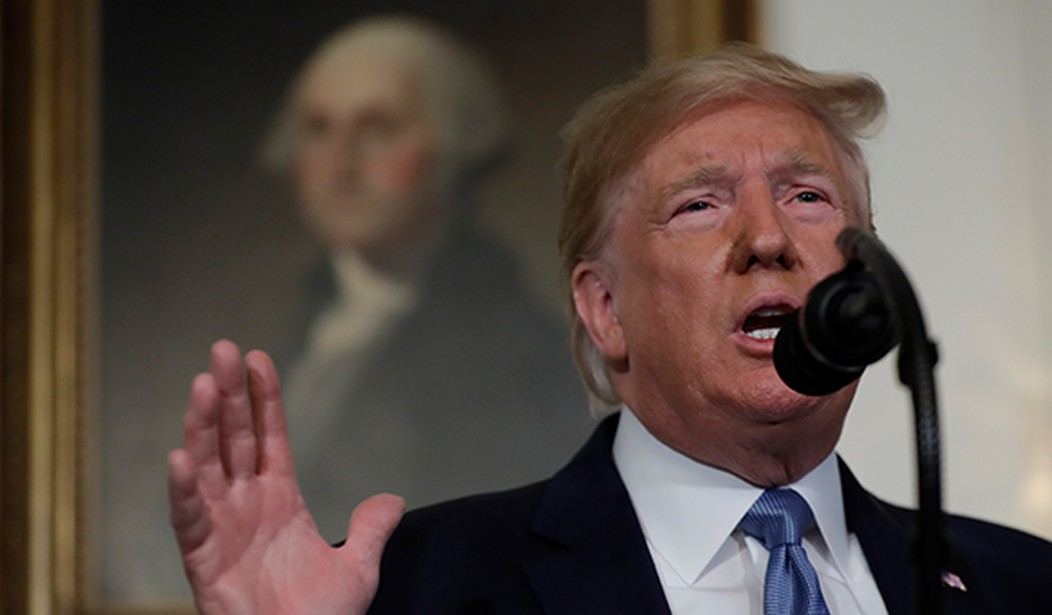After decades of American predictability, President Donald Trump's unexpected decision to cancel a secret Camp David meeting with the Taliban is the latest example of the effectiveness and strength of the strategy of the Trump negotiation team. The White House is no longer predictable. Instead, the president has time and again displayed willingness to make unanticipated maneuvers in order to achieve U.S. national security objectives.
The sound decision to walk away from negotiations at this time not only advanced the United States' negotiation position and strengthened the hand of lead negotiator Zalmay Khalilzad but also sent shock waves through Afghanistan, Pakistan and Iran.
The Afghanis, Pakistanis and Iranians who were accustomed to working off the predictable playbooks of America's last three presidents are now silent, struggling to determine their next move.
Trump's decision to walk away from negotiations compounded by the leak of the planned Camp David meeting has left the Taliban delegation utterly humiliated. The president outmaneuvered the Taliban delegation, weakening them inside Afghanistan. These high-stakes moves have now signaled a dramatic change in tactics to the region's players: Pakistan and Iran.
Back on the American front, our strategic weakness lies within the CIA and the Pentagon. These institutions' continued unwillingness to put their full commitment behind the president's clearly stated objective -- to withdraw U.S. military conventional forces, reduce the 17-year presence of overt, uniformed services personnel and transition to a Title 50 covert action program led by the CIA -- is detrimental.
Trump's new strategy dramatically reduces the overt footprint of the U.S. military, bending the cost curve in a direction that is sustainable and ending the senseless casualties we continue to sustain.
The fiscal burn rate for continuing "business as usual" is approximately $54 billion annually for us to keep "overseas contingency operations in Afghanistan and Iraq." The president has stated clearly to the intelligence community and the Pentagon that this is not sustainable but unacceptable.
Recommended
Every week, America spends over $1 billion from the Pentagon budget in these two countries. More troops and more money without a new strategy is a formula for failure. Retired General Stanley McChrystal suggested that we "just kind of muddle along." Does that sound like a wise strategy? The Pentagon command has actually told the president it will take another 18 to 20 years to stabilize and rebuild Afghanistan on pace with current operations and expenditures.
This shift from overt boots on the ground to a more effective and streamlined force of special operators will achieve several key objectives. First, it will deplete far less of our nation's valuable fiscal reserves. Second -- but by far most important to American parents -- it will reduce needless deaths of young men and women bravely serving but in a losing battle with no end in sight.
As General Scott Miller follows the president's directive and transitions our troops to a more covert footprint, the missing piece at the moment is the CIA, which is dragging its feet and failing to do its share of planning, funding and implementing a smart strategy.
Sadly, the CIA has lost its institutional memory on how to properly design, implement and creatively fund a multiyear covert action program. Our government, with proper planning, could set up a program to stabilize the Afghan armed forces, build capacity through training and equipment and assist the Afghans with intelligence and air cover for the next five years -- all while shouldering just half of the cost.
Trump is on the right track in terms of both policy and tactics. But the intelligence apparatus is either incapable or unwilling to do what is being asked of them. A similar problem faced President Ronald Reagan when he took over a CIA that was seriously depleted under President Jimmy Carter. The Reagan administration fixed the CIA in short order through dynamic leadership, a handful of strategic sackings of bureaucrats in Washington and the field stations and by bringing in a cadre of senior, experienced contract case officers and leaders to mentor the incoming officer corps and move the CIA forward. Within nine years, the Soviet Union collapsed, and the Cold War was over.
The bottom line is that optimal results can occur in a shortened timeframe, but not with the current leadership team at the CIA holding America back.

























Join the conversation as a VIP Member